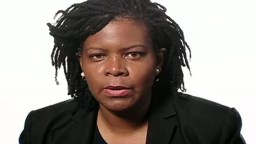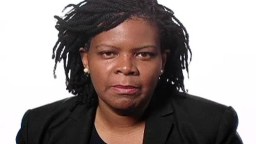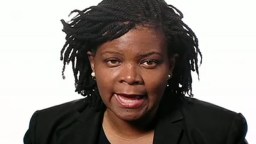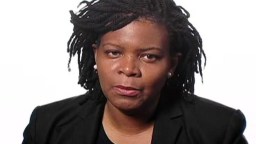Annette Gordon-Reed noted that analyses of slavery and slave ownership were missing from the bulk of Jeffersonian scholarship.
Gordon-Reed: Well, it goes back to almost my first encounter with Jefferson. The idea, the black people are missing. Any kind of realistic portrayal of what’s slavery was like in general, but also slavery at Monticello. Jefferson, as a slave owner, is missing. Not just him writing sort of philosophical stories about, philosophical pronouncements about what’s slavery means, but actual, the day to day relations with black people. That’s missing from a lot of Jefferson’s scholarship or if it’s there it’s the sort of happy, [dorky] kind of story, you know, that’s told and not really getting at the nature of this, of his relations with blacks. You know, and tell you in particular, you know, people wrote about him have long accepted that Sally Hemings and her siblings and five of her siblings were the half sisters of Jefferson’s, you know, half siblings of Jefferson’s wife. Well, you know, but they never written of that way. It’s always Bob, the manservant or James, the chef. These or his wife’s relatives, and in my book, I always refer to them that way and to sort of emphasize the fact that this is a relationship that’s not, it’s a master-slave relationship, the servant-master relationship, but there’s a blood relationship between these people as well, and invite people to… but this shows how weird Southern life really was at that time and slave life was, the slave society really was. So, I think the big puzzle, the big piece of the puzzle missing was a nuanced and a realistic portrayal of Jefferson as a slaveholder coming to grips with that aspect of his life. There’s a big hole in there.





